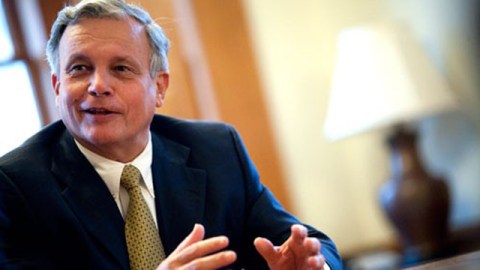Former HBS Dean Jay Light Assesses How Business Education Has Changed

Did Harvard Business School contribute to the financial crisis that stunned the world for the past few years? Former dean Jay Light says it’s possible that HBS—and business schools generally—may not have been focused enough on teaching future leaders how to keep an eye on the downside in an interconnected world.
“I think it was a failure of leadership in the sense that it was a failure to think in a broad and creative and responsive way about risk,” says Light of the financial downturn. “There were also some ethical failures I think as there are when any bubble collapses, but the single most important lesson coming out of this crisis in my judgment was more about values and judgment.”
In his Big Think interview, Light talks about how HBS evolved over the 40+ years since he first joined the faculty in 1969, saying that the most obvious difference between then and now is in the diversity of the students, of the faculty, of the subject matter the school teaches. “It’s just a very, very different set of individuals who relate to each other in a much more complex way,” he says.
Nonetheless, even with all the changes brought on by technology and diversity, he says the fundamentals of HBS’ business education have remained constant. “It’s the challenge of that engaged classroom, the intellectual challenge of one student to another, of a student to a faculty member and vice versa that marks what goes on in our classroom and in that sense it’s very much the same and also in the sense that what we’re really trying to do is develop leaders who make a difference in the world,” says Light. “That was the mission we started out with 100 years ago. That was the mission 41 years ago when I joined the faculty. That is still the mission.” He says HBS’s new dean, Nitin Nohria, should really focus on trying to provide leadership and continue to push the school to evolve in new directions.
Light also talks about China’s capabilities, acknowledging the country’s organizational strengths but asserting that the U.S. will remain ahead of the game in terms of innovation. “I believe that we have an inherently more innovative society here and you can see it across all the creative and innovative industries,” says Light, “and I think we can continue to let that innovative spirit lead us in ways that allow to develop economically.”





